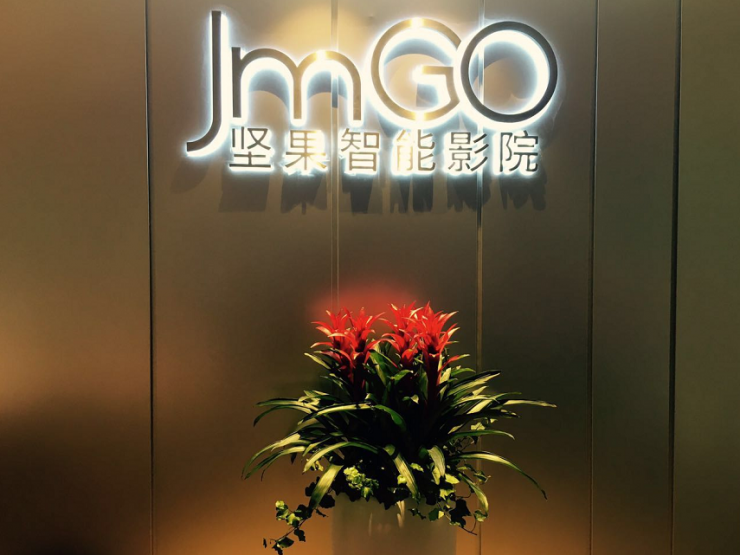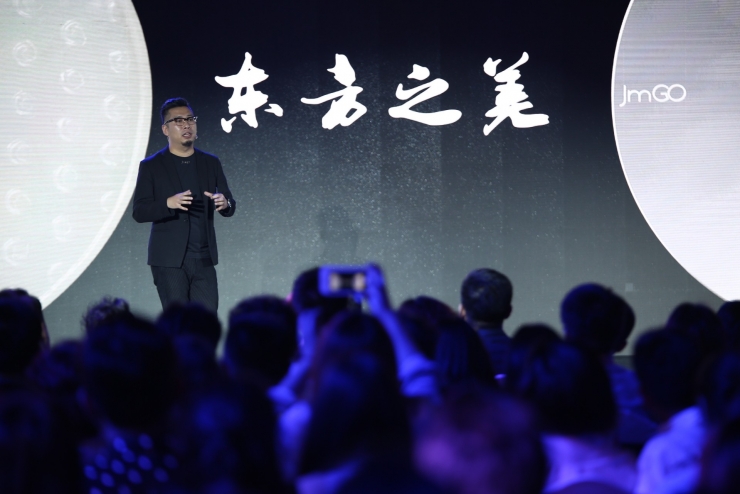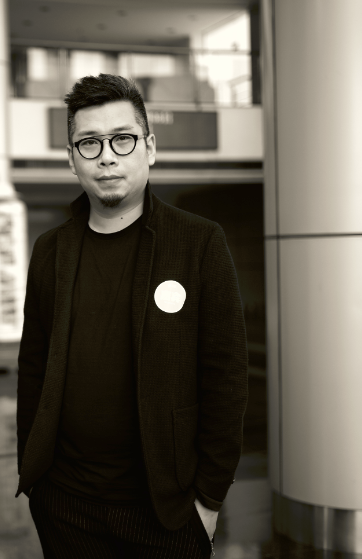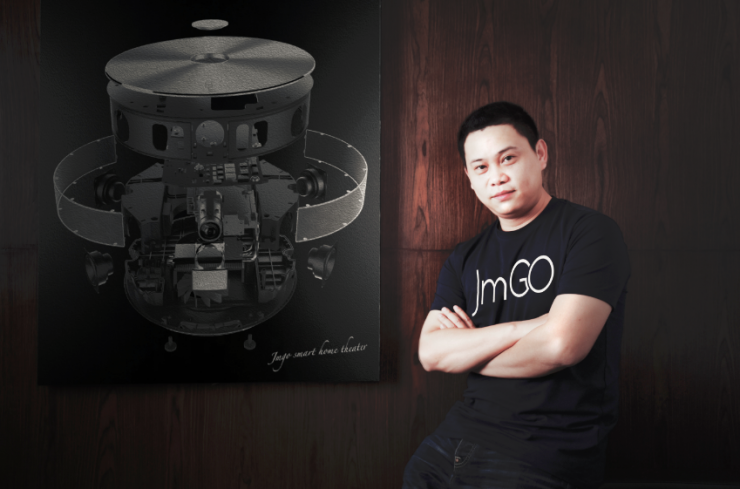Three major upgrades were completed during the rapid growth. The 1.0 version of the nuts, led by the technical person Hu Zhenyu, completed the start from 0 to 1. The 2.0 version of the nuts, designed by the designer Chen Xingbo, through a distinctive brand personality, achieves iterations from 1 to 10; version 3.0 nuts , from the time of the management of Huawei's Ji Yuelin to sit, do a good job from 10 to 100 preparations, from the hard-earned star company to the industry giants.

The success of a startup company cannot be separated from the top team. Â
This is an old saying, but for start-ups, creating a top-level team is easier said than done.
One company chose to cure all kinds of dissatisfaction. When the company was in difficulty two years ago, the founder recruited a top designer. In just a few months, the company's performance has been advancing rapidly and it has become a market share of similar products. The first brand.
This company was founded in 2010 by Huoluo Technology (the parent company of Nut Intelligent Cinema, hereinafter referred to as “nutsâ€), and its founder Hu Zhenyu, one of the reds in hardware entrepreneurship.
Perhaps because of this ups and downs, Hu Zhenyu became more aware of the importance of team building. In the strategy of talent recruitment, nuts have been sparing no effort.
At the end of last month, the company ushered in a new general – Ji Yuelin, former president of Huawei China. At this point, the core members of the nuts were also successfully upgraded by a combination of Hu Zhenyu and Chen Xingbo into a three-man lineup (Hu Zhenyu: founder, chairman; Ji Yuelin: co-CEO; Chen Xingbo: co-CEO).
The current nuts have taken a big step forward from Hu Zhenyu’s team of wolves.

Begin with design
If Hu Zhenyu's entrepreneurial history is opened, he will find that doing a projector is actually his second venture. Â
However, the competition in the projector industry is very fierce. At that time, BenQ, Sony, and Panasonic were the big brands in the projector field. However, the products introduced by nuts did not differ greatly in appearance and content from the products on the market. After listing, almost no one cares.
What Hu Zhenyu excels at is that he has found the crux of the problem in a timely manner, and he believes that as long as the company is able to design a unique projector based on the excellent product, the company still has a chance. At this time, Hu Zhenyu found the industrial designer Chen Xingbo who had a few edges.

The reason why Chen Xingbo will be found is not only because of their experience in cooperation, but more importantly, the position of Chen Xingbo in the field of industrial design.
He has conducted several product design and design strategy consulting services for Motorola, GE, Spacelabs, Philips, SIEMENS, Whirlpool, Panasonic, Huawei, ZTE, TCL, and other well-known domestic and foreign companies. He has also won the Global Design Award Red Dot. Dot) "Supreme Award", iF Product Design Gold Award, Las Vegas ICES - Design and Engineering Award Innovation Award, China Innovation Design Red Star Award and other awards.
Chen Xingbo then added nuts to manage and coordinate the company's resources as a partner; the design of the right to speak was decided by Chen Xingbo. After joining the nuts, Chen Xingbo quickly demonstrated his talents in industrial design. In the case of a square projector on the market, he developed a circular projector that breaks the convention - nuts G1.
The reason for this design is very simple. As a designer, Chen Xingbo's eyes are only subversive and imitation.
The advent of the Nut G1 was quickly recognized by the industry. The company also took the opportunity to obtain a round of financing of RMB 60 million from Dayan Capital Partners, IDG and Star VC.
In addition to industrial design, after Chen Xingbo served as CEO, he successively hired 14 outstanding talents, such as product director, financial director, and marketing director, from major companies. It is now the longest position to occupy the domestic smart micro industry. Â
After obtaining round B financing, Hu Zhenyu spared no expense in acquiring a 18-person UI team and built a business model of “hardware + software + contentâ€.
In this way, nuts all the way to sing, in 2015 the first line of sales online and offline.

Zeroing: Looking to the Giants
In March of this year, the nuts earned a $600 million Series C round of financing, and the valuation has reached 30 times that of a year and a half ago. Hu Zhenyu and Chen Xingbo are still not satisfied with the status quo, they have already done a plan for the next step, which paved the way for Ji Yuelin's joining.
How can we quickly maximize the occupation of the market? In the past two decades, Huawei's experience in the market and supply chain management has become the best complement for the two.
In May this year, coincidentally, Ji Yuelin met Chen Xingbo.
After the two became acquainted, Chen Xingbo sent a message to Ji Yuelin, who was looking for a joint CEO. The rational Ji Yuelin did not reply for the first time.
Having contacted Chen Xingbo and Hu Zhenyu successively, Ji Yuelin found that he and the two founders were really involved, so he personally visited the company.
As soon as he arrived at the company, his first feeling was that the team was very similar to the early Huawei.
The whole team is full of vigor and vitality, showing a good atmosphere of prosperity.
At this time, he officially decided to join the idea of ​​adding nuts, and Hu Zhenyu and Chen Xingbo formed the “big three†of the smart hardware circle.
Ji Yuelin entered the office of President of Huawei as early as 1994. Two years later, he participated in drafting the first draft of Huawei's Basic Law;
In 1997, Ji Yuelin became one of the first batch of Huawei's terminal business and was responsible for sales in Henan and Shandong provinces. Since then, he has begun to focus on domestic and foreign markets. Â
In 2005, he helped Huawei open up markets in the Middle East and Africa and achieved remarkable results. So far the revenue of this area has exceeded 5 billion U.S. dollars.
In 2007, he served as president of Huawei China Terminal; in 2009, he was responsible for global sales of Huawei terminals. In 2012, Ji Yuelin left Huawei for family reasons and switched to investing.
Why does a veteran in the hardware industry choose nuts?
Now that the traditional projectors are being eliminated, future LCD TVs will be eliminated by smart projectors. The nut product is in line with the future direction of development. He thinks this is a very perfect business model. Â
The sales of nuts from tens of millions of sales in 2014 to sales this year is expected to reach 1 billion.
Judging from domestic and foreign markets, there is not yet a brand that can compete with nuts.
Ji Yuelin said.
Of course, he also admitted that nuts still have a lot of room for improvement. Since June 30, after joining the nuts, Ji Yuelin had only been in Shenzhen for two days. He spent most of his time visiting the nut market, and he discovered that the nut products had as much room as he expected.
This kind of room for improvement is exactly what Mr. Ji Yuelin’s work experience can achieve during his stay in Huawei. He once served as president of Huawei Terminal China and president of global sales. He has the ability to control the resources of the domestic and international channels and the industry to allow the nuts to advance to the next level.
Ji Yuelin will become the company's trader in the future, including day-to-day operations and management of major functional departments. Chen Xingbo is responsible for the company's product innovation strategy. In addition, he and Hu Zhenyu and Chen Xingbo will form a three-person decision-making group. Hu Zhenyu will serve as the director and the other two will be members. All three major events will be jointly discussed.

Hu Zhenyu: Set sail and make the stronger stronger
“The best thing that Ji Yuelin can bring to the company should be Huawei's complete system architecture.†Hu Zhenyu said that after several in-depth discussions with Ji Yuelin, he learned that Huawei started from the earliest small workshop company. The tech giants in the corporate management effort are easily overlooked by the outside world. “Huawei introduced a number of third-party consulting agencies around 2000, spending hundreds of millions each year to improve the company’s systems, systems, and processes.†Hu Zhenyu later learned that Tencent is also built under Huawei’s system. It is Huawei version 2.0. Now that Ji Yuelin has come to a nut, Hu Zhenyu has finally released his sense of crisis in corporate management capabilities.
From the failure of the initial products of the initial venture, to the stunning industrial design level of the Nut G1, attention has been paid to obtaining the leading position in the industry. Hu Zhenyu’s heart is the most in need of a sense of crisis. It is this sense of crisis that makes nuts always take a step forward in product strategy. He said that the earliest idea of ​​starting a business was that projection technology had the opportunity to subvert LCD TVs on home screen entertainment terminals. If intelligent micro-projection brings the user a unique big-screen experience, then with the development of technology, laser (projection) TV has finally reached the stage of commercialization, and it is closer to the dream of subverting LCD TVs. A step. Thanks to the accumulation of nuts in projection technology for many years, they have launched their own laser television products. Although facing the competition from traditional TV giants, Hu Zhenyu still has confidence in its product performance and innovation experience.
With the addition of Ji Yuelin, Hu Zhenyu and Chen Xingbo can also devote more energy to the techniques and designs they are best at. The three-person core management team is leading the new battleship, the nuts, to the wider waters. Although there are more powerful competitors here and more unknown, they are ready for battle.
5G Industrial Router features Application field
With the continuous progress and development of science and technology, a new generation of communication technology -5G is gradually entering our lives. In the industrial field, the application of 5G technology is also constantly advancing, bringing new opportunities and challenges to industrial production. Industrial routers, as one of the key devices for 5G applications, play a crucial role. This paper will introduce the definition, characteristics, application fields, development trends and other aspects of 5G industrial routers in detail.
What is 5G Industrial Router
Simply put, 5G industrial router is a special type of router equipment based on 5G technology, which is used to connect industrial equipment and systems to achieve high-speed transmission and exchange of data. Compared with traditional routers, 5G industrial routers have higher bandwidth and lower latency, which can better meet the requirements of real-time data transmission and high stability in industrial production environments.
Features of 5G industrial routers
First of all, high bandwidth is a significant feature of 5G industrial routers. The introduction of 5G technology enables industrial routers to support large-scale data transmission and processing, providing more powerful data communication capabilities for modern industrial production. Second, low latency is another important feature of 5G industrial routers. The advantage of low latency enables industrial routers to achieve real-time data transmission and processing, improving the efficiency and response speed of industrial production. In addition, 5G industrial routers also have the characteristics of high stability, high reliability and high security, and can cope with complex industrial environments and demanding data communication needs.
5G industrial router application field
First of all, the Internet of Things field is one of the important areas of 5G industrial router application. As the popularity and application range of Internet of Things devices continue to expand, the requirements for data communication are becoming higher and higher, and 5G industrial routers can provide reliable data connection and transmission services for Internet of Things devices. Secondly, the field of industrial automation is also one of the main application areas of 5G industrial routers. In industrial production, the transmission and processing of real-time data is crucial to improve production efficiency and quality, and 5G industrial routers can meet the needs of high-speed and low-latency data transmission to help achieve the goal of industrial automation. In addition, 5G industrial routers can also be widely used in intelligent transportation, smart cities, intelligent manufacturing and other fields.
With the continuous development of 5G technology, 5G industrial routers will also usher in a new development trend. First, with the popularity of iot devices, the demand for 5G industrial routers will further grow. Secondly, the introduction of virtualization and network slicing technology makes industrial routers have higher flexibility and scalability, in addition, the improvement of security will also become an important direction of the development of 5G industrial routers to cope with increasingly complex network threats and security challenges.
5G Industrial Router,Industrial Lte Router Poe,Industrial Security Router,Industrial 5G Cellular Router
Shenzhen MovingComm Technology Co., Ltd. , https://www.movingcommiot.com